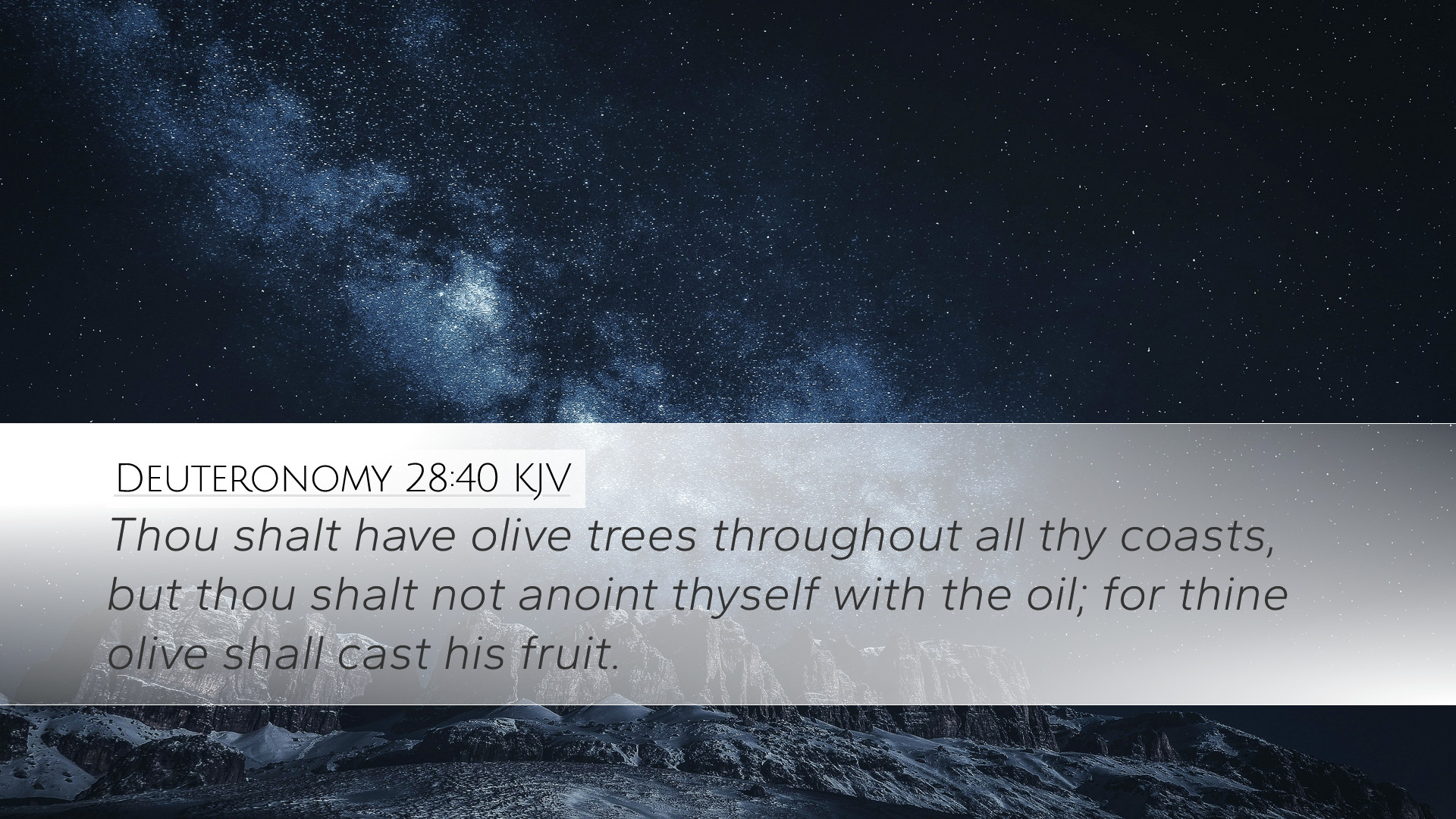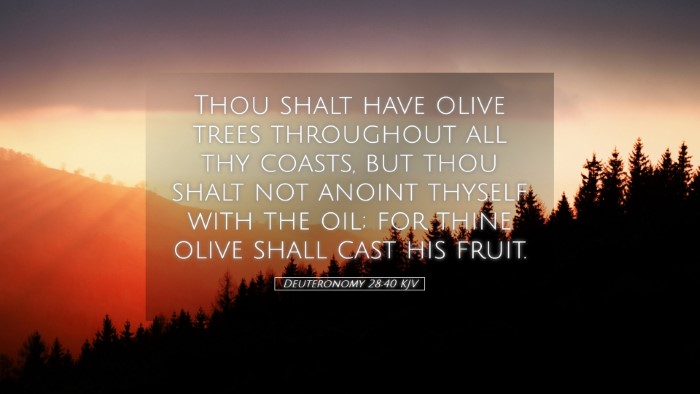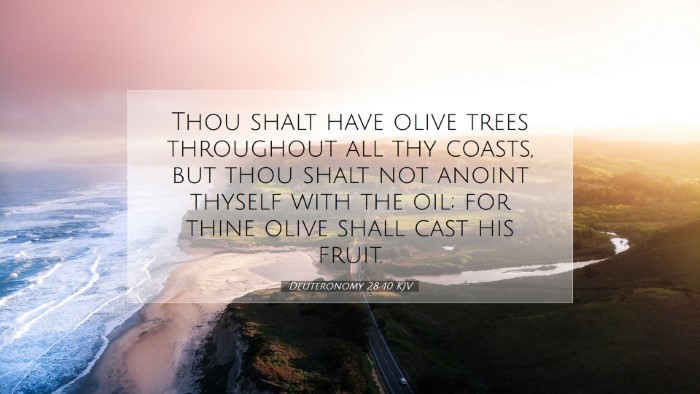Deuteronomy 28:40 - Commentary Overview
Deuteronomy 28:40 states:
"Thou shalt have olives throughout all thy coasts, but thou shalt not anoint thyself with the oil: for thine olive shall be cast off."
This verse is a part of the covenantal blessings and curses that Moses articulates, outlining the consequences of Israel's faithfulness or unfaithfulness to God.
Contextual Understanding
In order to appreciate the significance of this verse, we must consider its placement within the broader context of Deuteronomy 28, where blessings for obedience and curses for disobedience are systematically outlined. The disobedience of Israel leads to a stark reversal of fortunes, particularly in agricultural and material prosperity.
- Historical Context:
This chapter reflects the consequences faced by ancient Israel based on their fidelity to God. During Moses' time, olive oil was not only a source of nourishment but also a vital part of religious ceremonies and a symbol of abundance.
- Theological Context:
The blessings and curses serve as didactic tools to encourage Israel to remain faithful to God's commandments. Failure would not only affect individual Israelites but also the community at large due to their covenantal relationship with Yahweh.
Commentary Insights
Matthew Henry's Commentary
Matthew Henry highlights the symbolic nature of the olive tree, representing peace and prosperity. He notes that the loss of the ability to use olive oil signifies a comprehensive loss of blessing. The olive tree's fruit, which is essential for anointing and health, becomes inaccessible—a direct punishment for sin.
Henry emphasizes that these verses serve as a sober reminder of divine judgment. This judgment is not just about physical loss, but represents a spiritual barrenness that comes from turning away from God’s commandments.
Albert Barnes' Notes
Albert Barnes elaborates on the practical implications of the curse. He points out that olives were a staple commodity in ancient Israel, essential for dietary, cosmetic, and ceremonial purposes. Barnes interprets the phrase "thou shalt not anoint thyself with the oil" as indicating a loss of status and dignity. The anointing oil, a symbol of God's favor, would be withheld, demonstrating that disobedience leads to estrangement from divine grace.
Additionally, he notes the communal aspect of these curses—impacting not just individuals but the entire nation as a consequence of communal sin.
Adam Clarke's Commentary
Adam Clarke presents a thorough exegetical analysis, suggesting that the olive is a metaphor for abundance, and the inability to use it represents the eradication of blessings. Clarke’s interpretation is that losing access to one’s olive oil signifies not just material loss, but also the retreat of God’s presence and favor from the people.
Moreover, Clarke stresses the significance of understanding the historical implications for Israel. He warns against the complacency that comes with abundance, urging continual faithfulness to uphold God’s covenant promises.
Thematic Reflections
The verse provides rich thematic elements worthy of exploration:
- Divine Justice and Judgment:
The theme of divine retribution is clear—Israel's infidelity draws pronounced consequences. This theme resonates throughout biblical literature, reinforcing the idea of God’s righteousness.
- Covenantal Relationship:
The intertwined relationship between obedience and blessing underscores the theological concept of covenant. It reveals not only the expectations of God but also His response to humanity's choices.
- National vs. Individual Responsibility:
This verse encapsulates the reality that the actions of the nation impact the entire community, highlighting a collective responsibility in faithfulness to God.
Practical Applications
For contemporary readers—pastors, students, and theologians—this verse serves as a powerful admonition:
- Reflect on Personal and Community Faithfulness:
Engage in introspection regarding how individual and community behaviors align with God’s commands.
- Seek Spiritual Vitality:
Recognize that material wealth or physical abundance is meaningless without the accompanying spiritual health that comes from walking with God.
- Teach Responsibility within Community:
Foster an understanding among congregants that their actions collectively influence community spiritual health—a call to both individual and corporate faithfulness.
Conclusion
In summation, Deuteronomy 28:40 offers profound insights into the spiritual and communal consequences of disobedience. The predicated blessings and curses, when understood through the lenses of scholars such as Matthew Henry, Albert Barnes, and Adam Clarke, highlight the significance of maintaining fidelity to God’s covenant. It challenges present-day believers to remain vigilant against complacency and to seek the fullness of God’s blessings through faithful adherence to His commandments.


